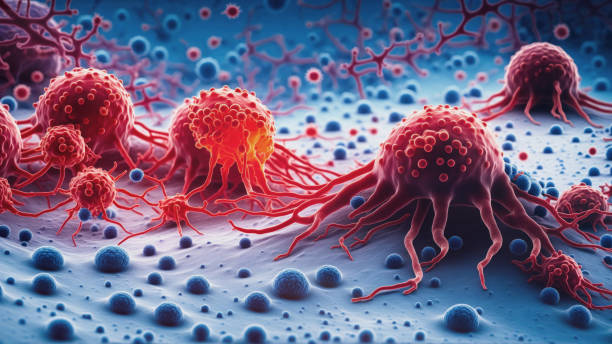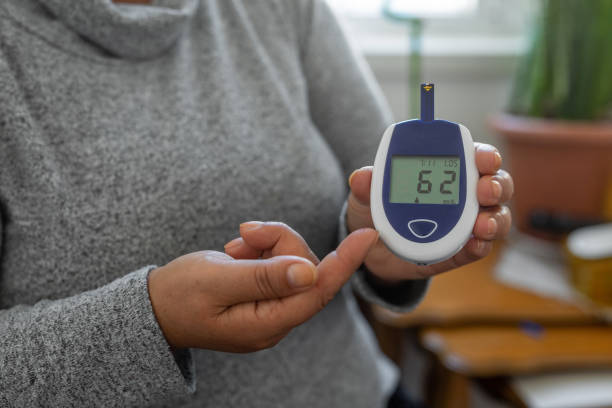Cancer is indeed a complex group of diseases characterized by abnormal cell growth that can invade and destroy surrounding tissues. It can affect almost any part of the body and has the potential to spread to other organs, which is known as metastasis.
The impact of on global health is significant, as it is the second-leading cause of death worldwide, following closely behind cardiovascular diseases. However, advancements in cancer research, early detection methods, treatment options like chemotherapy, radiation therapy, targeted therapies, immunotherapy, and improvements in supportive care have contributed to improved survival rates for many types of cancer.
Key factors in improving survival rates include:
- Early detection: Screening programs and early diagnosis allow for earlier treatment when cancers are often more treatable.
- Advances in treatment: New therapies and combinations of therapies continue to be developed, offering more effective options for different types and stages of cancer.
- Prevention strategies: Lifestyle changes such as quitting smoking, maintaining a healthy weight, regular physical activity, and vaccinations against causing infections (like HPV and hepatitis B) can help reduce the risk of developing certain cancers.
Symptoms of Cancer
Recognizing these signs doesn’t mean a person has cancer, but they serve as valuable clues that prompt further investigation by a healthcare professional. Early detection plays a crucial role in successful treatment, as it allows for interventions when tumors are smaller and haven’t spread extensively.
It’s true that many common conditions can share symptoms with cancer, which underscores the importance of seeking medical advice for proper evaluation and diagnosis. Some symptoms may indeed be related to less serious issues that can be effectively treated with early intervention.
Regular check-ups and being aware of changes in your body can facilitate early detection. Consulting with a doctor ensures that any concerning symptoms are thoroughly evaluated, leading to appropriate action and potentially better outcomes if cancer or another health issue is detected.
Ultimately, staying informed about potential signs of cancer and maintaining open communication with healthcare providers are key steps in maintaining overall health and addressing any health concerns promptly.
Here are common early signs and symptoms of cancer that can occur
1. Weight loss
Unexplained weight loss refers to a significant and unintentional decrease in body weight, typically 10 pounds or more, that occurs without any changes in diet or exercise habits. This type of weight loss can be concerning as it may indicate an underlying health issue that needs to be addressed.
2. Bone
Bone cancer typically causes pain right from the start. Some brain tumors can lead to persistent headaches that do not improve with treatment. Pain can also emerge as a symptom in the later stages of cancer. If you’re experiencing unexplained or persistent pain that doesn’t subside, it’s important to seek medical advice promptly.
3. Fever
ever is a common symptom of colds and the flu, typically resolving on its own.
However, specific features of recurrent fever may indicate a potential link to cancer. It’s essential to take notice if:
- Fever occurs predominantly at night.
- There are no other apparent signs of infection.
- Night sweats are experienced.
If you observe these symptoms, seeking medical attention is advisable to investigate the underlying cause.
4. Pain
Pain is a symptom that can arise from various health conditions, the majority of which are not cancer-related. However, persistent pain may suggest an underlying disease.
Contribute to pain through several mechanisms, such as:
- Pressure exerted by a mass or tumor on surrounding tissues.
- Chemicals released by the cancer affecting nerves and tissues.
- Metastasis, where cancer spreads from its original site to other parts of the body.
If you’re dealing with persistent pain of unknown origin, it’s crucial to consult your doctor for further evaluation and guidance on the appropriate next steps.
5. Skin Changes
Skin changes can provide valuable clues about our health status, as our skin is the largest organ of the body. Jaundice, characterized by yellowing of the eyes or fingertips, can indicate a potential infection It’s important to contact your doctor promptly if you observe any signs of jaundice.
Changes in moles should also be monitored closely. You should call your doctor if a mole exhibits any of the following characteristics:
- Asymmetry or irregular shape.
- Jagged or uneven borders.
- Changes in color or darkening.
- Enlargement in size or growth over time.
These signs can sometimes indicate early stages of skin cancer or other skin conditions that require medical attention.
It’s important to note that skin changes are not the only indicators of early cancer. Being aware of other potential symptoms and promptly consulting with healthcare professionals can aid in early detection and treatment.
6. Changes in bowel or bladder habits
Changes in bowel or bladder habits can be significant indicators of underlying health issues, including potential signs .It’s essential to pay attention to persistent changes such as:
Bowel habits:
- Diarrhea or constipation: Persistent changes in bowel movements that last for more than a few days without any apparent reason (such as changes in diet or medication).
- Narrowing of stool: Stools that become narrower than usual, which could indicate a blockage in the colon.
Bladder habits:
- Changes in urinary frequency: A noticeable increase or decrease in how often you need to urinate.
- Changes in urinary urgency: Sudden and strong urges to urinate that may be difficult to control.
7. Unexplained bleeding
Unexplained bleeding can be a concerning symptom that should prompt medical evaluation. Here are some instances of unexplained bleeding that require attention:
Blood in urine (hematuria): Seeing blood in the urine, which can vary from pinkish to bright red, may indicate various conditions, including urinary tract infections, kidney stones, or potentially bladder or kidney cancer.
Blood in stool: Rectal bleeding or finding blood in your stool can be a sign of gastrointestinal issues, such as hemorrhoids, diverticulosis, inflammatory bowel disease, or colorectal
Coughing up blood (hemoptysis): If you cough up blood or notice blood in your saliva or phlegm, it could be due to respiratory infections, tuberculosis, bronchitis, lung cancer, or other lung conditions.
Abnormal vaginal bleeding: This includes bleeding between periods, unusually heavy menstrual bleeding, bleeding after menopause, or any bleeding during sexual intercourse. It can be a sign of conditions such as fibroids, polyps, hormonal imbalances, or uterine, cervical, or ovarian cancer.
Causes
arises due to mutations in the DNA of cells. DNA, the genetic material in our cells, contains genes that provide instructions for normal cell functions, growth, and division. When these genes acquire mutations or errors, they can disrupt normal cellular processes. These mutations can cause cells to grow uncontrollably, leading to the formation of tumors and potentially spreading to other parts of the body.
Some key points include:
-
Mutations in DNA: Changes in the DNA sequence can occur due to various factors such as exposure to carcinogens (like tobacco smoke or UV radiation), genetic predisposition (inherited mutations), or simply random errors during cell division.
-
Impact on Cell Function: Mutations can affect genes involved in regulating cell growth, repair, and death (apoptosis). When these genes malfunction, cells may evade normal growth controls, leading to uncontrolled proliferation and tumor formation.
-
Cancerous Transformation: A cell with accumulated mutations may eventually acquire characteristics of cancer cells, such as the ability to invade nearby tissues and metastasize (spread) to distant organs.
Precaution
Doctors recommend several strategies to reduce the risk of cancer:
-
Stop Smoking: If you smoke, quitting reduces the risk of several types of cancer, not just lung cancer. For non-smokers, avoiding starting smoking is also crucial.
-
Avoid Excessive Sun Exposure: UV rays from the sun increase the risk of skin cancer. Protect yourself by staying in the shade, wearing protective clothing, and applying sunscreen.
-
Eat a Healthy Diet: Opt for a diet rich in fruits, vegetables, whole grains, and lean proteins. Limit processed meats, which are associated with increased risk.
-
Exercise Regularly: Aim for at least 30 minutes of exercise most days of the week. Regular physical activity lowers the risk of cancer.
-
Maintain a Healthy Weight: Being overweight or obese can increase the risk of several types of cancer. Maintain a healthy weight through balanced eating and regular exercise.
-
Drink Alcohol in Moderation: Limit alcohol consumption to one drink per day for women and up to two drinks per day for men. Excessive alcohol intake is linked to higher cancer risk.
-
Schedule Cancer Screening Exams: Regular screening exams can detect cancer early, when treatment is most effective. Discuss appropriate screening tests with your doctor based on your risk factors and age.
-
Ask About Immunizations: Certain viruses like hepatitis B and human papillomavirus (HPV) can increase cancer risk. Ask your doctor about vaccines that can prevent these infections and associated cancers.




